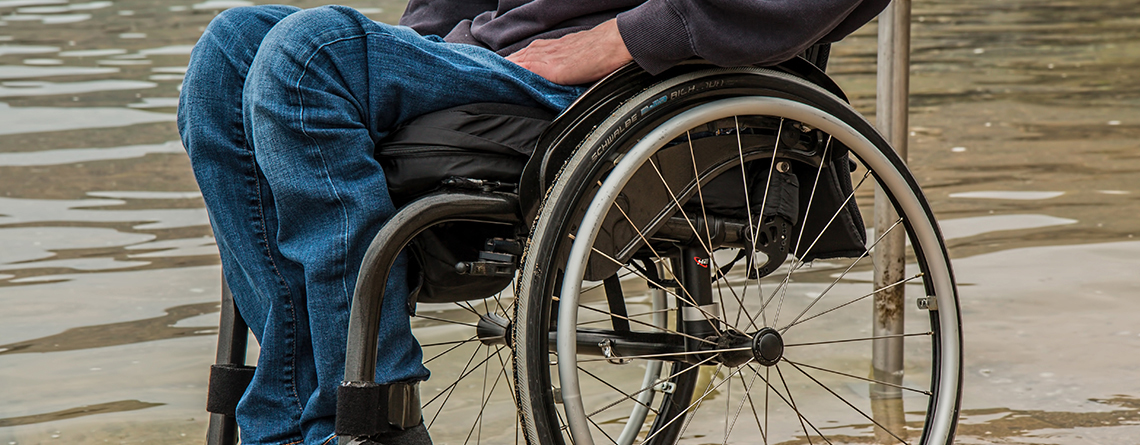Special Considerations
Special Considerations are Important
Knowing and understanding a traveler’s needs are critical steps in making their trip a success. Whether the need is to prevent something that triggers a mild allergy, or a severe physical disability, Educational Destinations wants to effectively provide quality travel arrangements. If you, or a loved one, have a special need or dietary restriction and will be traveling with Educational Destinations, we have you covered. When a group is focused on its performance, it is easy to overlook issues with accessibility, facilities or other factors that will ensure all members of the group are able to participate and enjoy the trip to the fullest extent. Performance travel requires extra consideration at every stage of planning and executing the trip.

Educational Destinations understands special considerations
It is important to travel with a tour provider that will make your travelers a priority. In planning a trip, remember that everyone in the group deserves to participate in all activities.
Educational Destinations has a process for addressing special needs and dietary restrictions: All special considerations are handled individually and a level of service that all travelers deserve. These travelers are assigned a dedicated Operations Coordinator who will address individual requests.
Here are some questions and answers that will help your special consideration traveler during their next trip:
When you register for the trip, don’t forget to tell us about any special considerations including physical limitation or food allergies. Please share that information with us, so we can explore options and plan the best possible experience for the traveler.
For physical limitations, please share everything that might help us plan. For instance, if walking all day for several days is going to be a struggle, let us know. While the group is on foot, we will arrange a location for them to take a break. If they use a wheelchair, we want to be sure their fold-able wheelchair will fit in the motor coach luggage bay. We may be able to reserve a handicap-accessible motor coach if needed.
Key Tip – Select and brief the traveler’s wheelchair companion and have them practice before trip departure.
For travelers with cognitive disabilities, some amusement parks offer a rider switch program, which allows one person to experience a ride, while another person waits with the traveler who does not. The two helpers then swap places to allow the second traveler to ride without waiting in line. Also, some parks offer a guide that addresses each attraction's specific triggers, such as flashing lights, loud noises, surprise elements, etc.
Key Tip – Request cognitive disability information from amusement parks and other attractions early in trip planning.
For food allergies, it's important for travelers to tell us the specific foods they must avoid as well as alternative foods they can enjoy. For instance, if one traveler has nut allergies, list the specifics (i.e., My student is allergic to almonds, hazelnuts, walnuts and cashews, but not allergic to peanuts and pine nuts). If your traveler is a vegetarian, let us know if they may eat dairy products, eggs, honey and gelatin. Be as specific as possible. Once we're informed we will contact our dining vendors to gather meal options. We will do our best to accommodate dining needs.
For those who have food restrictions based on faith traditions, let us know specific needs so we may arrange appropriate meals.
Key Tip – Let us know what you CAN eat, in addition to the foods that you cannot eat.
Check the “Special Need” box during trip registration. This is the best way to let us know that your traveler has a specific concern. When the trip is moved from the Travel Designer stage to your Operations Agent, they will send an introductory e-mail to each person who checked the Special Need box. Reply to the Agent with detailed information by the requested due date.
Key Tip – Be open. Be specific.
Your Operations Agent contacts vendors with specific requests. Once arrangements are finalized, special consideration details are shared with the ED Tour Director who re-confirms and travels with the group throughout the trip. Receiving special consideration details early allows us to plan the most appropriate course of action.
Key Tip – Share information as soon as you receive your email. It takes time to gather options and determine a plan of action.
Share the special considerations for the traveler with music directors, teachers and chaperones. Also, the traveler should be coached to be their own advocate, especially in situations when an adult leader is not present. Music Travel Tour Directors manage pre-planned arrangements, answer questions and handle adjustments. Maintaining open communication and working together to share information with all parties is essential for a smooth trip.
Key Tip – Share your student’s special considerations with the Chaperone and or Director/Teacher.
Be patient – Someone with special considerations may move more slowly than other travelers. The journey is sometimes more interesting than the destination. You may see something amazing that you would have missed otherwise, and everyone still will participate in all the activities and events.
Be flexible – When the unexpected happens (i.e., a meal is delayed, a ride is stopped to load a traveler, etc.) take a moment, take a breath and look around. This is a great opportunity to think about details you want to remember about the trip.
Be kind – You will have a unique experience but the same experience might be challenging for someone else. Can you help? Trips are more fun when you get to know the other travelers in your group and share memorable adventures.
Educational Destinations Goals
- Give travelers the highest degree of accuracy, care, responsiveness and timeliness while providing the best possible tour.
- Create a truly fun experience that simultaneously exposes and educates our travelers about new places and cultures.
